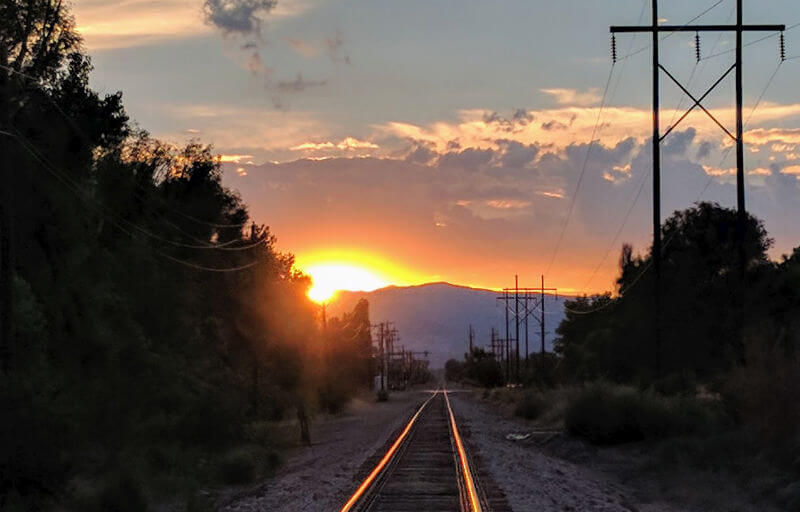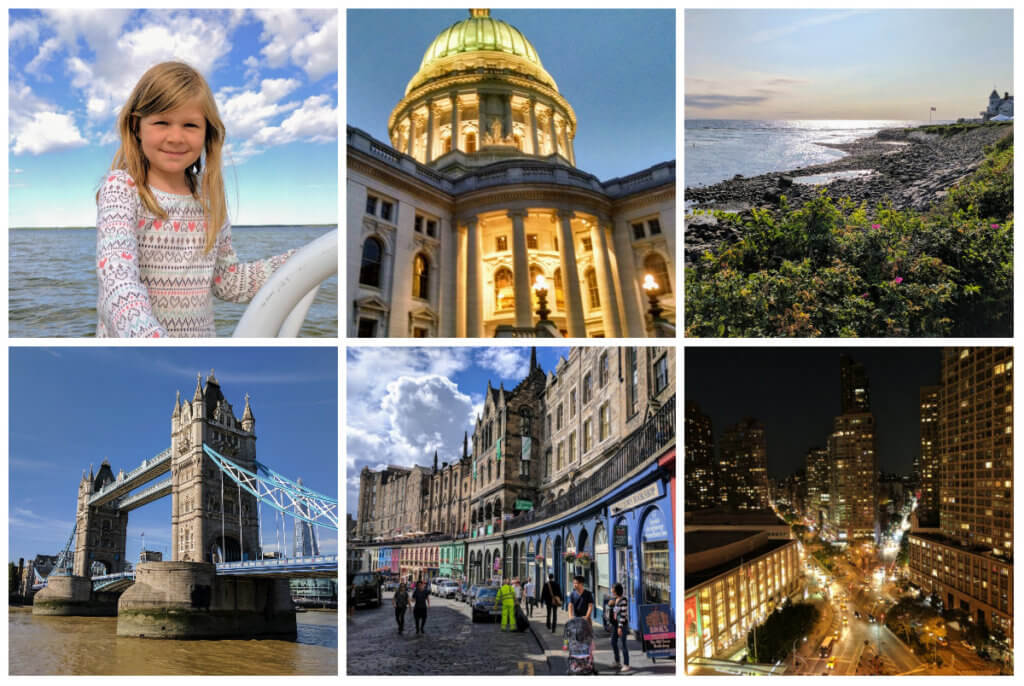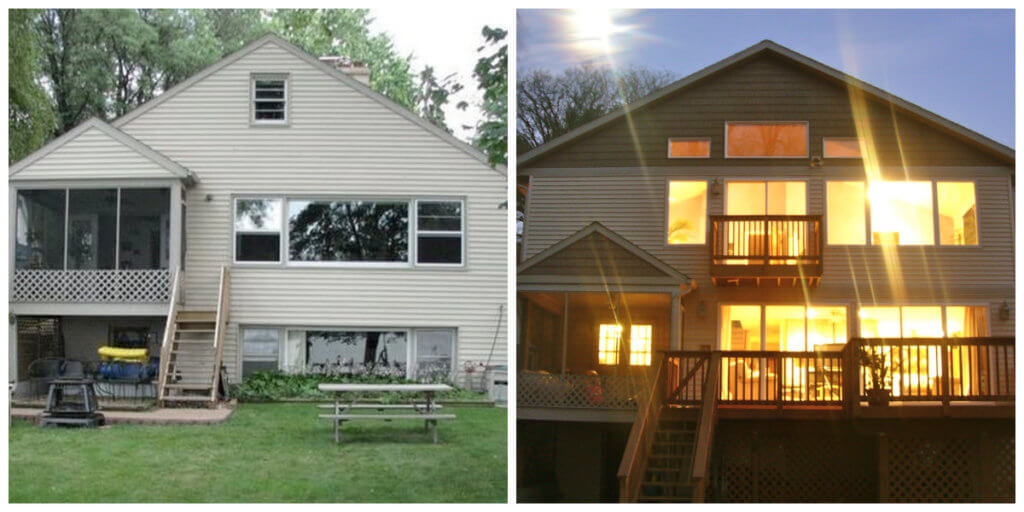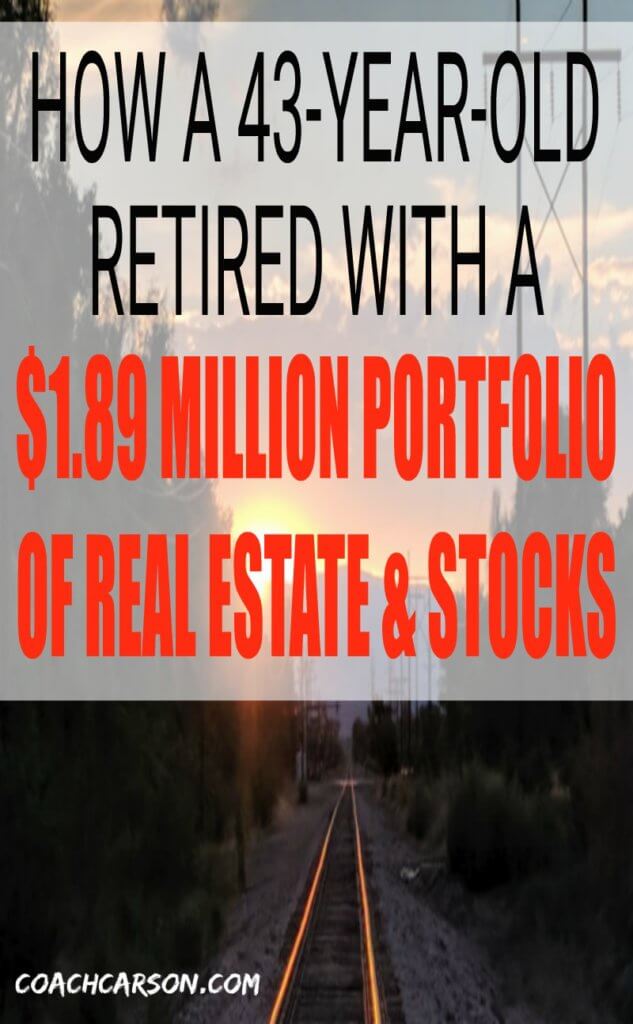[In my Investor Profile Series, I use a question & answer format to share the stories of actual real estate investors at different stages of their investing careers. Be sure to comment below if you enjoyed it or if you have questions for the investor.]
Today’s investor profile is with Carl from the blog 1500days.com. Carl has become one of my good blogging friends. We also enjoy a quality craft beer or two when we meet in-person to talk about real estate, life philosophy, fatherhood, and mutual love of the outdoors.
What I love about this interview is Carl’s candidness. You’ll see behind the scenes of how Carl built a $1.89 million net worth. But you’ll also see the mindset that helps him enjoy that wealth as a 43-year-old early retiree. But don’t begin to think he’s not working anymore! Like me, he’ll always projects that use his skills and make an impact.
Now I’ll turn it over to Carl …
Personal
Age? 43
Your home location? Boulder County, Colorado. Mountains, snow, streams along with great biking and hiking. Enough said. Every evening after dinner, I walk in the field behind my home and smile at the sun setting behind the Rocky Mountains.

Career/Source of regular income?
Up until April of 2017, I was a software developer. I’m financially independent now and left my job, but entertain myself by writing on my blog, 1500 Days, and on Budgets are Sexy.
[Chad: I follow a lot of blogs, but Carl is someone I read regularly without fail. He’s smart, funny, and has an amazing perspective on a lot of subjects. I definitely recommend following along wherever he writes]
What hobbies do you enjoy? What do you do for fun?
This depends on the season:
- Summer: Anything outdoors including hiking, geocaching and enjoying fine beer.
- Winter: Mostly outdoors including snowboarding, snowshoeing and enjoying fine beer.
- Anytime: I love to read and build stuff in my garage. Exploring new corners of the earth is also a passion. This summer, we spent 41 days traveling including stints in the Midwest and United Kingdom.

A fun/interesting/little-known fact about you?
I once biked from Chicago to Madison Wisconsin in a day (128 miles). My legs were OK with it, but my butt hurt for a week. Have you seen the baboons at the zoo with the red butts? Sorry, too much information. At least I didn’t include a picture!
[Chad: That had me laughing out loud. Sometimes Carl sometimes shares pictures over on his blog:) But I’ll avoid seeing this one, thank you very much!]
Financial Independence/Retirement Plans
What does financial independence mean to you?
Three words: Options. Options. And Options. That was four words, but you know what I mean. The main reason to pursue financial independence is to live life on your own terms and according to your own rules.
And financial independence has nothing to do with not working. Everyone needs meaningful work. However, it’s much better to work because you want to instead of having to. It’s also much better to pursue work when the paycheck is happiness and growth instead of money.
Do you have plans for financial independence/retirement? Or have you already reached financial independence?
I reached my financial goal in April of 2016 and left my job in April of 2017. Having almost limitless freedom took a little getting used to and I still haven’t hit my stride. However, I haven’t regretted my decision, even for a moment.
Every day, I get to walk my kids to school. I have time to exercise and read. Sometimes, I’ll just go on a walk for two hours in the middle of the day because I feel like it.
Why do you want to achieve retirement/financial independence? What kind of activities and projects will you spend more time on? What projects, causes, hobbies, or other activities mean the most to you?
Life should be an ever changing journey of exploration and personal growth. I currently spend most of my work-time writing on 1500 Days and other related projects, but those won’t last forever. As new opportunities present themselves, my life will continue to evolve. I have no idea what my days will look like in 5 years, but I suspect that it will be much different than it is right now. And that is all part of the fun.
If you had to start over and wanted to become financially independent, what’s the most important thing you would focus on?
I’d focus on living. I spent too much time earning money and not enough time enjoying myself. There are many ways to get wealthy, but you only have one chance at life.
Investment Portfolio
Do you invest in real estate? If so, why do you like it?
I do invest in real estate. And I don’t like it; I love it. I’m also a stock market investor, but I like the control that comes with real estate investments. There are all kind of events that can shake up the stock market (like bankers behaving badly!). Real estate allows me to have more control over my financial destiny. I still invest in the stock market and always will, but I sleep better at night knowing that about half of my assets are in real estate.
How did you get started? Did you have any help?
I got started in flipping by accident. I fixed up my first home and was surprised to sell it for $100,000 in tax-free profit (thanks, IRS 2 out of 5-year rule!). After that, my wife and I were hooked. We’d buy cosmetically ugly homes, fix them up and sell them two years later for sweet, tax-free profit. We’d do most of the work ourselves while we lived in the homes. Live-in flips weren’t alway easy, but they allowed us to build up our nest egg quickly.

What were the biggest obstacles you faced when starting? How did you overcome them?
The biggest obstacle was work-work balance. I had no life. I’d work from 8am-5pm at my job and then work from 5 pm until 10 pm on the home.
And I never overcame it. I’m an “all or nothing” type of guy. I’m not working on a home now, so life has settled down.
I’m always looking for the next one though. The home next door will be for sale soon and needs a lot of work…
[Chad: I think Carl’s honesty shows something common to many of us aspiring for big goals – we become semi-obsessed with our work and side-work projects. I know I’ve often found myself in the same boat. And I’m not sure it’s so easy to say it’s right or wrong.
The elusive idea of “balance” is something we all have to figure out for ourselves. And there are some seasons of our life, especially early in our career or financial growth, when balance may not be the top priority. We just have to hustle and get it done.
I do know that both Carl and I both value more non-work balance at this point in our lives with young kids. And although I never plan to stop using my skills and contributing to others (i.e. work), I plan to do work more and more on my terms and without money as the primary measurement of success. Fun & fulfillment are much more interesting currencies for me at this point:)]
What % of your net worth (roughly) is in real estate?
Not counting my primary home, it’s about 50%.
What other types of assets do you invest in? Why? How do they fit with/complement real estate investments?
I also invest in the stock market. Index funds are an easy, no brainer investment.
Before that, I invested in individual stocks. I managed to do very well including buying Google shares at IPO (20 bagger!).
I like to say that I go where the opportunity takes me. And by “opportunity,” I mean monetary returns.
I use real estate to balance my stock market holdings. When markets are expensive like they are now, I direct more money to real estate. When the stock market has a 30% correction, the money will flow back in the other direction.
Real Estate Deal
What’s the best or most memorable real estate deal you’ve made? Why?
My most memorable deal is my current home which exemplifies my ideal flip.

I loved this deal because of the location. The city still had rough edges when I bought in 2013, but I could tell it was improving quickly. Also, the home is in a great part of town. If I were to give advice for a flip, especially one that may take a while, it would be this:
- Find a town or area that is improving. I like areas with strong and growing economies.
- Find the best part of town and buy the worst house in it.
How did you find the deal? Why did the owner sell?
The home had been a neglected rental that had been foreclosed on. I bought it from Fannie Mae. The home had a requirement (Fannie Mae HomePath) that the purchaser had to live there for a year, so investors were excluded from the deal. This is the only reason I was able to get the house.
What were the basic numbers like purchase price, remodel costs, rent, resale price (if applicable)
I picked it up for about $175,000. I then put about $100,000 and a lot of sweat into it. After just 4 years, the home is worth north of $500,000.
How did you finance the deal and raise down payment funds?
I considered paying cash, but since interest rates were low, I financed instead (15 years at 3.25%).
What is the overall effect of this deal on your life? Lessons learned?
The monetary payoff will be later in life when I sell the home.
Random observations and lessons:
- Don’t take on too much: Taking on a massive remodel with a full-time job and children was a mistake. I should have waited until I left my job to begin the work.
- I tricked the neighbors into helping my home’s value: A couple years ago, the home across the street changed hands. I asked the new owner why he moved into the home and his response was this: “I saw all of the work you were doing on your home and I liked that the neighborhood was improving.” He went on to completely remodel his home. Better homes around me make my home more valuable. (This is another reason why I want to flip the home next to mine!)
Personal Growth/Development
Do you have any tools that help you manage your life, like a physical planner or digital software?
I couldn’t live without Google Keep. This is a note-taking app that synchronizes across screens. I can take a note on my phone and it automagically appears on my desktop within seconds. I’m always thinking and if I don’t write down thoughts, I risk losing them forever. There are few things worse than remembering that you had a great thought, but had no idea what it was.
What does a typical morning routine look like for you?
- 5:30 am: Wake up and meditate for 10 minutes.
- 5:40-6:30: I plan out my day,; reviewing my to-do list in Google Keep. I also review my calendar. After that, I get caught up on bills, balance the budget and other miscellaneous tasks.
- 6:30-7:30: Help the girls get ready for school and have breakfast with them.
- 7:30-8:15: Walk the girls to school (1 mile away). On the way back, I listen to a podcast. Favorites include Barry Ritholtz’s Masters in Business, Mad Fientist (hear me here and Chad here!) and Tim Ferriss.
- 8:15-9:30: Exercise. I either do a P90x routine, a bike ride into the foothills near my home or a run around the neighborhood.
- 9:30-11:30: Deep work. I plow through whatever core tasks that I have planned for that day. I try to stay off social media and email.
What’s your #1 habit to stay personally productive and fully engaged in life?
This one is easy. I’m going to put it in bold letters to emphasize it:
Practice mindfulness.
Live in the moment and appreciate it. I’m a worrier and I used to spend too much time worrying about the past or planning the future. I’d check my phone too much and find myself lost in thought, not paying attention to life around me.
This is easier said than put into practice. I recently read a pretty great quote attributed to a Buddhist monk that helps me:
Be aware of and appreciate every breath.
Obviously, it’s impossible to spend every moment concentrating on breathing, but it’s still great advice. When I find myself in a bad state of mind, I take the deepest breath my lungs will muster. As I do, I think of how fortunate I am to be alive, healthy and able to take the breath. I think about the wonderful opportunities I’ve had and how happy I am with the life I’ve built for myself.
I’ve found that happiness doesn’t come naturally to me, but I can work at it. Is any pursuit less worthwhile than happiness?
[Chad: Mindfulness has been and continues to be a habit I like to work on, too. I must say I’m not sure I’ve made much progress seeing how impatient I get with my kids! Lol. My core practice is to meditate in the mornings for a short time, and I write a gratitude journal at night by listing 5 things I’m thankful for. I recommend Jon Kabat-Zinn’s book Wherever You Go, There You Are. And for parents, my wife and I love Kabat-Zinn’s Everyday Blessings: The Inner Work of Mindful Parenting.]
Who have been your most important heroes, mentors, and/or teachers?
Here are some of my favorites:
- Jim Collins taught me proper investing with his excellent Stock Series.
- Mr. Money Mustache taught me proper living with his unique point of view. He gave me permission to be the strange person that I naturally am and not care about what others think. I think that it’s wonderful that a multi-millionaire will toil in the hot sun doing his own concrete work.
- Warren Buffett and Charlie Munger: These two know how to build wealth, but also are charitable and know how to live. These two were practicing financial independence before Mr. Money Mustache was born.
Like Warren, I had a considerable passion to get rich, not because I wanted Ferraris – I wanted the independence. I desperately wanted it. –Charlie Munger
[Chad: I’m a fan of all of these as well. In October I’m actually going to be hanging out with Jim Collins and Mr. Money Mustache at a retreat called the Chautauqua down here in Ecuador. I’m excited!]
What are your favorite books or authors? Can be categories in business, investing, or life/philosophy (other than a sacred book)?
My favorite investing book is Poor Charlie’s Almanack. This is an obscure and deep book that will not only teach you how to build wealth, but how to conquer your cognitive biases and be a good person.
The Millionaire Next Door taught me that real wealth is stealth. The folks driving fancy cars (except for me) are living paycheck to paycheck.

What legacy do you want to leave personally and in your career?
If I’ve helped just one person live a better life, I’ve helped to make the world a better place.
Final Advice For Other Investors
What advice do you have for a young person just considering their future career and life as an adult?
Pay no attention to what anyone else does or thinks. Mr. Money Mustache didn’t build a great life and a worldwide movement by following the herd (if you follow the herd, you’ll step in poop). Carve out an intentional and deliberate life for yourself. You may be different, but like MMM, you’ll find your crowd and be happier for it. I know that I am.
Any tips for others looking to invest in real estate and achieve financial independence?
There are many paths to wealth. Instead of making excuses for why you can’t do this or that, start figuring out how you can.
The best advice I can give you is to read voraciously. I’m wealthy (wait, is $1,900,000 wealthy?), because I have a passion for knowledge. I could be happy in a cabin in the middle of nowhere if I was surrounded by interesting books.
After that, be tenacious in everything you do. Whatever you do, do it better than the guy next to you. At review time, remind your boss of your hard work. If he doesn’t reward you properly, find another boss who will appreciate your hard work
Any big mistakes you’ve made that others should avoid?
Never forget about the journey. Life is about so much more than money. I like to tell people that the whole purpose of becoming wealthy is so you can live a life where you don’t have to worry about money. Money is not the goal; it’s just a facilitator and a starting point.
The real goal is to live a satisfying and happy life. At the core of this is doing the work that you know deep down you were meant to do. Chad Carson may tell you his life’s work is teaching. Mine is writing. I’m so happy that I’ve figured this out.
[Chad: Thank you to Carl for taking the time to share with us! I was simultaneously entertained and inspired. I hope you were too. You can follow Carl at his blog 1500days.com.
If you have any questions or comments for Carl, please leave them below. He’d love to hear from you.
Get My Free Real Estate Investing Toolkit!
Enter your email address and click "Get Toolkit"

I love what financial independence has meant for you. Options, options and more options. I’m not there yet but when I try to explain that to people they look at me confused. I think a lot of people are under the impression that they’ll be bored in retirement or plan to never work again. I don’t think they realize that they can pursue whatever they want if they have the time and energy.
Yep – Carl gets to the heart of the matter for me too … options. That flexibility within life is priceless. It allows me to say “I don’t know what I’ll be doing 5 years from now.” and be completely ok with that!
I’m sad that there was hardly one mention of his wife. No additional quality time with her, not even a mere mention of what this retirement means now to his relationship with her.
If there is blame … perhaps it should be on the question asker (me) for not going there. But I do happen to know Carl’s wife, and I also happen to know she has also been VERY happy about the retirement. And if you follow 1500days.com you’ll see a lot of travel update pictures including well, family quantity time (which tends to let quality time happen spontaneously).
Hey Shay! Yes, our relationship is better in FI. And she is one of the reasons I left my job. I was afraid to quit, but she encouraged me because she knew I’d be happier. She is also the reason that we do so much with real estate (her connections).
On a deeper note, it’s so important to have a spouse on the same page. I’m so incredibly thankful that I have this.
That’s a great interview Chad! Carl has had a very different path than me, which is why he is so fascinating to learn from. One common denominator behind many successful people is that they tend to read a lot..
I agree DGI that it’s fascinating to learn from other people’s paths. There are so many different perspectives and approaches that it’s humbling (and exciting).
Well done. Interesting, good to hear a different perspective , as we’re not real estate folks. See you in Ecuador Coach! We’re excited and only 6weeks away!!!!
Great! I didn’t know you were coming (must be hidden behind the name:). I’ll see you soon!
Great interview. I certainly wouldn’t want to do the bike ride from Madison to Chicago, particularly in that traffic. Maybe Chicago to Milwaukee (also quicker).
Thanks for commenting, Jason! I won’t be doing any ride that length, either. Especially after hearing what it did to Carl’s butt:)
Hi Chad, and Mr 1500,
While I love to hear stories like this I was a bit confused when I went to Mr 1500’s blog site. I was hoping he or you could explain the very large cash inputs…like 100K 3 months in a row. Your goal was to save atleast 24,000 annually… this is quite a jump from that . Just really baffled at that one…and a bit jealous too.
Thanks!
Hi Elizabeth! I do a poor job of explaining the chart on my Goal Progress page. The cash column is simply how much cash I have on hand at that moment in time, not the inputs.
I intended to keep track of the inputs when I started the blog, but didn’t. Blogging was more work than I thought it would be and I quickly lost track.
Over the past couple of years, we saved a little over $50,000 per year, mostly into our solo-401(k)s..
Thanks for taking a look!
Thanks for the explanation. Actually I like your tone on the blog, never over ones head and all to the heart of what are critical points to be made on the specific subjects you write about. Since you are under 59.5 how are you able to actually get the funds to live off of. Or do you take a tax hit yearly. I will check your blog for more articles.. as I may find the answer their. Loving what I am reading so far. My husband and I are at the mark that you and your wife were in 2013 .. we are in our 50’s ;53, 52 respectively so this is really a perfect fit in many ways.
Thanks again! and enjoy that beer!…in moderation:)
Thanks Elizabeth! I have a lot of post-tax investments, so I don’t think that I’ll have to cash out pre-tax investments early. However, there are some perfectly legal and safe strategies to do so. It just takes a little planning: http://www.madfientist.com/how-to-access-retirement-funds-early/
How a 43-Year-Old Retired With a $1.89 Million Portfolio of Real Estate & Stocks? He inherited $3.0 million? That joke never gets old.
Funny – I don’t see a lot of blog posts on that $3 million to $1.89 million method. Lol.
It all started with -$60,000 of college and credit card debt. If only I hadn’t bought that useless Biology degree and Sony stereo. Sigh…
Lots of great advice and inspiration in one article. Appreciate the tip of practicing mindfulness, it’s something I’ve been working on and it’s not necessarily easy for me. Writing in a journal has helped. I also love the concept of being fluid with real estate and stock market investments to find a balance. People seem to be so much in one camp or the other, but it seems that if you can smartly utilize both, you’ll be better off.
I’m with you Passive MD – the mindfulness isn’t easy. And I also like using a journal. It helps with mindfulness but it’s also a little more active, which I like.
I like Carl’s approach to moving back and forth between stocks-real estate as opportunity strikes. I’m still finding opportunities in real estate, but I have plans to move more into stocks long run as well.
Thanks for the visit!
Great interview. I’ve been a big fan of Carl’s blog for years now, to the point that we’re kind of stealing his goal and plan for FI. 🙂
Stealing is the greatest form of flattery, or something like that right? So steal away:)
Great interview, Carl and Chad. While you guys have mastered the real estate investing story, I achieved FI entirely through financial assets, largely because of my laziness to being a landlord. What’s nice behind this story is that all that matters is the WILL to get there. Once the WILL is there, the WHAT & HOW appear to each person and nudge towards success. Also Carl, I love Colorado, especially the Boulder area, and I hope to visit there soon – will ping you Carl for a beer then. Chad, your diligence in real estate investment is simply amazing.
To each his or her own, right? I think it’s great there are multiple ways to accomplish the same thing, as you’ve demonstrated. Definitely agree – WILL to get there helps you figure out the best way for yourself. That’s the ingredient you can’t remove no matter what.
Thanks for stopping by to comment!
Life is good with your newfound freedom, isn’t it?
I could benefit from practicing a little more mindfulness. I wish I had been mindful of the position of my left hand as I adjusted the disc brakes on my bicycle last night. Instead of taking my son out for a birthday dinner, I spent a little time in the ER getting a mangled fingertip cleaned up!
I’m doing much better today, although it did take about 45 minutes to type out this comment. I just ordered an e-bike conversion kit very similar to the one Mr. 1500 used in his DIY bada** ebike featured on MMM. That should lead to more excitement and injury.
Cheers!
-PoF
Mindfulness while riding bikes is most useful! Wow, ER room and a mangled finger tip. You didn’t need any anesthesia, did you?
I’ve got fingers missing ligaments, etc from old football fun. It does make typing interesting. I may be doing one of those verbal typing things in 20 year:)
Thanks for coming over to comment, Doc:)
I can appreciate what Carl has done since I’m on a similar path – looking to retire early at 46 in a couple years, relying on a mix of rentals and stock income. Carl’s knack for pointing out the obstacles (and when he stubs his own toes on them) is what sets him apart from the herd. Really appreciate the dry and often gut busting humor – he’s the real deal. Thanks for a great interview, Chad and Mr. 1500!